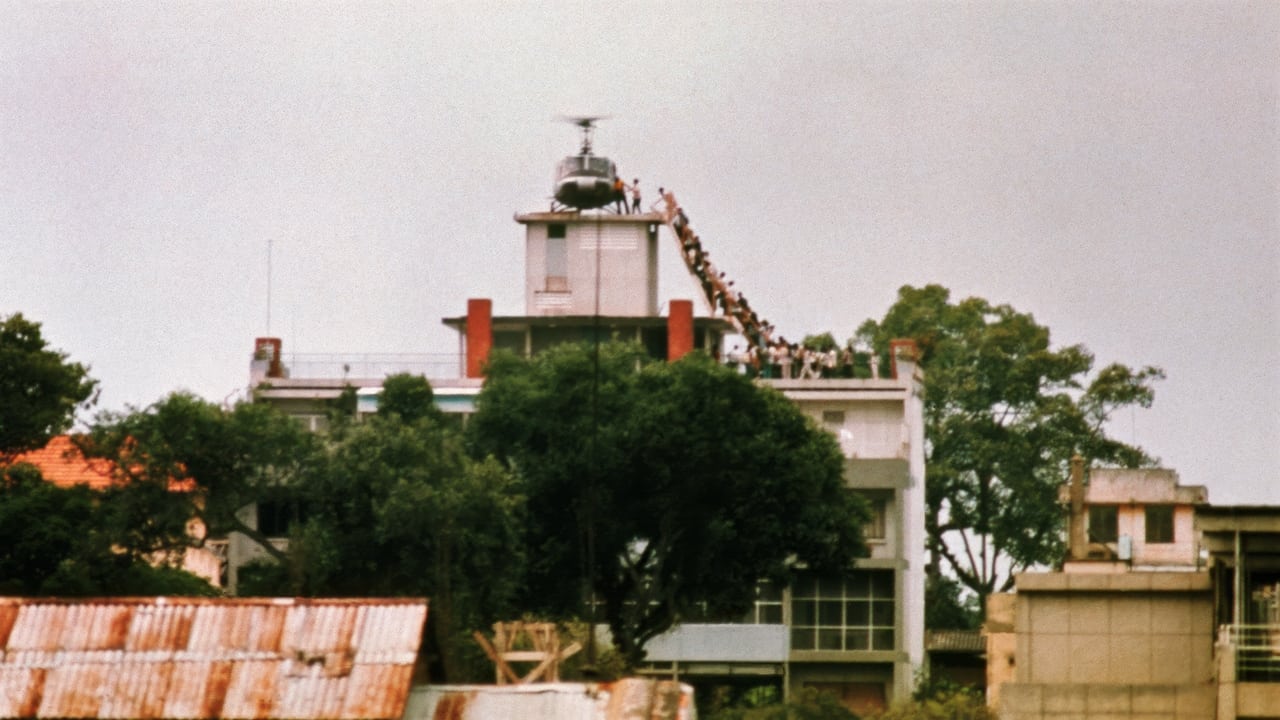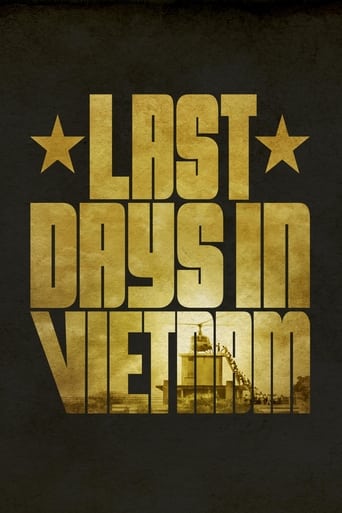

In 1973, a peace agreement is signed in Paris to end the Vietnam war. In Aug. 1974, President Richard Nixon resigns. A few months later, the North launches a full scale invasion of the South. Americans are war wearied and help is not coming. The American ambassador refuses to accept defeatist talk. Some in the embassy organize a black ops smuggling out vulnerable Vietnamese. As the NVA closes in on Saigon, the Americans set off the secret evacuation plans with Bing Crosby's White Christmas.The iconic imagines from the evacuation are the helicopters taking off from the rooftop and the helicopters being pushed overboard. For most people, these are the collective memories. This documentary dives deeper into the story. Some of it is fascinating behind the scenes stuff. The last half is a bit repetitive as various harrowing stories do resemble each other.
... View MoreIt's very heart wrenching to watch 'Last Days in Vietnam'. Old memories keep just rushing back like yesterday. I would like to thank the help of many American personnel, except the stupid 'Dr'. Kissinger. We lost the war because of the maneuvering dirty politician like Kissinger, in general, I have lot of respects to Jewish people as a whole, but not Kissinger. Let's not forget that Kissinger is also the one who opened the door for China to become a powerful country which it now threatens the world and its neighbors.As for the last ambassador Martin, he is very much in the same category as the loser of president Nguyen van Thieu. I wish that we have a good president back then.To the Kennedy family, you NEED to do a film on the tragedy of your family and see whether or not it is a some kind of pay back as result of ordering the killing of brothers Ngo family. Both families are catholic.
... View MoreOne more in a series of mockumentaries by the husband and wife team. A gory display of a snapshot in time when mayhem and confusion was at it's greatest. Lots of discussion about Nixon and Ford. Almost nothing about the key role of the Kennedy Family and LBJ escalating the war then losing it. No Discussion about the disgrace of abandoning millions to die by communist genocide and re-education camps. Just a focus on the most embarrassing elements of the evacuation. Another waste of R Kennedy's and her husband's talents on bashing rather than building. If none of these films have a box office, who is paying to make them? The research on this film is claimed to be very in depth and complete, however anyone actually doing that could not bring themselves to heaping more insult upon the soldiers of many countries who died buying time for the 6 million put to death after the communist dictators took over southeast Asia.
... View MoreI sat in a small theater with people that were at least a generation older than me watching this documentary. I'm too young to remember Vietnam, was born in 1972. I am a Vietnam War history buff and have visited Vietnam on three separate occasions. This documentary was extremely well made and it includes some never seen before footage of the chaotic evacuation from Saigon. For an hour and a half I was glued to the movie screen. The story telling is excellent and it includes words from both the Americans and the South Vietnamese. Perhaps it would have been interesting to add a perspective from the North Vietnamese who were storming the city and why they allowed the helicopters to leave without challenging the evacuation. All and in all and excellent documentary and one that I enjoyed very much.
... View More